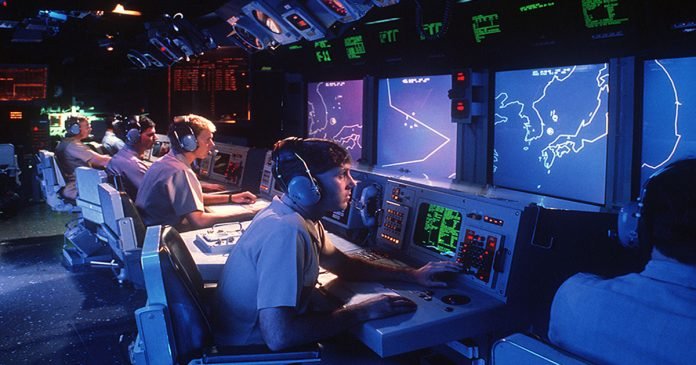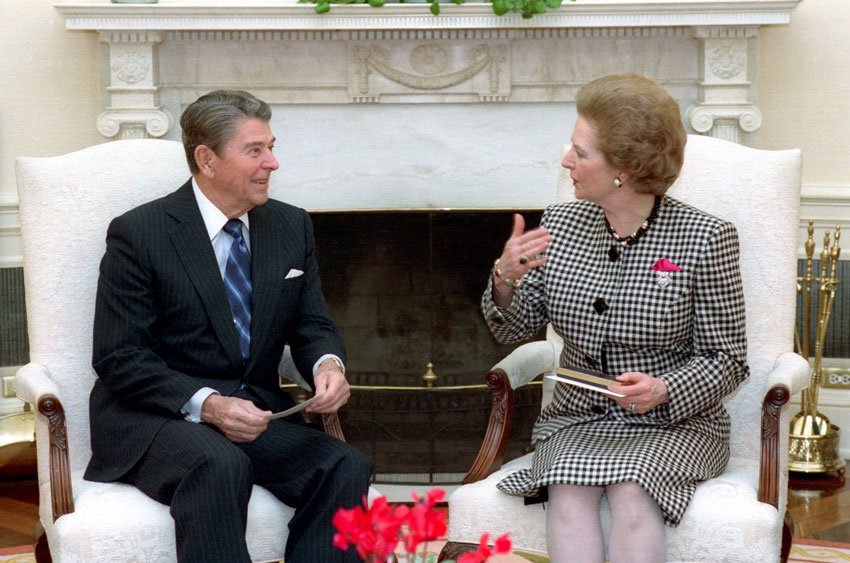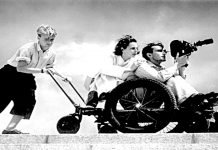
BRITAIN ‘IMMEDIATELY’ SUPPORTED THE U.S. OVER THE SHOOTING DOWN OF AN IRANIAN AIRLINER
In 1988, a U.S. Navy warship shot down an Iranian airliner, killing all 290 civilians on board. Newly declassified files show how Margaret Thatcher’s government offered immediate support to the U.S. and assisted in the cover-up, John McEvoy reports.
By John McEvoy
Declassified UK

Declassified UK
The attack occurred during the Iran-Iraq war, which had begun in 1980 with Saddam Hussein’s invasion of Iran.
The U.S. government backed Saddam and sent warships to the Persian Gulf to support the Iraqi war effort.
One of those warships was the USS Vincennes which, on 3 July 1988, fired two missiles at Iran Air Flight 655 while it was making a routine trip to Dubai.
Washington claimed the U.S. Navy had acted in self-defence, but this wasn’t true. The plane had not, as the Pentagon claimed, moved “outside the prescribed commercial air route,” nor had it been “descending” towards the Vincennes at “high speed.”
The U.S. thus shot down a civilian airliner, and haphazardly tried to cover it up. Some 66 children were among the 290 civilians killed.
‘No Other Government’
On March 2, 2000, U.K. Foreign Secretary Robin Cook met with U.S. General Colin Powell, who had served as U.S. President Ronald Reagan’s national security adviser between 1987 and 1989.
Powell “spoke frankly” throughout the discussion, leading Cook to request that the U.S. general’s “confidence… be strictly protected,” according to the newly released files.
In particular, Powell recalled that, after the U.S. shot down Flight 655, Thatcher’s private secretary for foreign affairs, Charles Powell, “had rung immediately from Downing Street to ask what the Americans wanted the British Government to say.”
The British government thus offered immediate support to the U.S., despite it having killed hundreds of civilians, most of whom were Iranian citizens.
To this end, Powell remarked how “America could count on no other government to behave like that.”
Powell would go on to become President George W. Bush’s secretary of state, in which role he deceptively pushed for the invasion of Iraq in 2003.
Staunchest Defender

President Ronald Reagan and Prime Minister Margaret Thatcher in the Oval Office, 1988. (White House, Wikimedia Commons)
In the weeks following the attack, Thatcher stood out as Reagan’s staunchest defender. “You cannot put navies into the gulf to defend shipping from [Iranian] attack without giving them the right to defend themselves,” she declared
In private correspondence with Reagan, Thatcher even speculated on the positive implications of the attack, writing that: “The accident seems at least to have helped bring home to the Iranian leadership the urgent need for an end to the Gulf conflict.”
As journalist Solomon Hughes wrote in The Morning Star, the British Foreign Office also developed a “line to take” which was consistent with Thatcher’s public support of the U.S.
For instance, the Foreign Office emphasised that “the USS Vincennes issued warnings to an approaching unidentified aircraft but received no response,” and stressed that the U.S. was responding to “an Iranian attack.”
The Foreign Office knew it was isolated in its support for the U.S. An internal memo written in July 1988 noted that “only the U.K. included a reference to the [U.S.] right to self defence, thereby attracting criticism from Iran and other countries.”
Eight years later, in 1996, the U.S. government paid Iran $131.8 million in compensation for the attack, and President Bill Clinton expressed “deep regret” over what had happened.
However, the U.S. government has never formally apologised for the attack and the captain of the USS Vincennes was awarded the Legion of Merit for “exceptionally meritorious conduct in the performance of outstanding service.”
Some believe Iran paid terrorist groups to bring down an American airliner in retaliation. Five months after the crash, Pan Am flight 103 exploded over Lockerbie in Scotland, killing 270 people.
John McEvoy is an independent journalist who has written for International History Review, The Canary, Tribune Magazine, Jacobin and Brasil Wire.
This article is from Declassified UK.
Support Independent Journalism Today
Our unwavering dedication is to provide you with unbiased news, diverse perspectives, and insightful opinions. We're on a mission to ensure that those in positions of power are held accountable for their actions, but we can't do it alone. Labour Heartlands is primarily funded by me, Paul Knaggs, and by the generous contributions of readers like you. Your donations keep us going and help us uphold the principles of independent journalism. Join us in our quest for truth, transparency, and accountability – donate today and be a part of our mission!
Like everyone else, we're facing challenges, and we need your help to stay online and continue providing crucial journalism. Every contribution, no matter how small, goes a long way in helping us thrive. By becoming one of our donors, you become a vital part of our mission to uncover the truth and uphold the values of democracy.
While we maintain our independence from political affiliations, we stand united against corruption, injustice, and the erosion of free speech, truth, and democracy. We believe in the power of accurate information in a democracy, and we consider facts non-negotiable.
Your support, no matter the amount, can make a significant impact. Together, we can make a difference and continue our journey toward a more informed and just society.
Thank you for supporting Labour Heartlands











